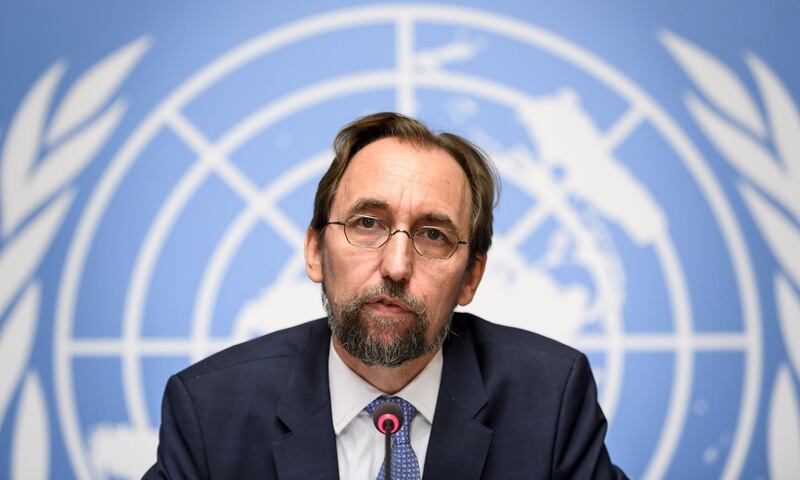The former United Nations High Commissioner for Human Rights, Zeid Ra'ad Al Hussein, has disputed claims that he retaliated against UN whistleblowers as he prepares to accept an award from The Netherlands for his contribution to the field of human rights.
The Jordanian prince, who left his position on September 1, used a new Twitter account which he runs in a “personal capacity” to rebut claims against him from two whistleblowers who accused him presiding over reprisals for bringing issues within the UN Human rights organisation OHCHR to light.
The Netherlands’ ministry for foreign affairs said it was awarding the Human Rights Tulip prize to Mr Al Hussein because “he addressed human rights violations wherever they occurred. This critical and independent attitude is what is needed in a world where human rights are in jeopardy in many places.’
_________
Read more:
[ UN approves Michelle Bachelet as new human rights chief ]
[ No regrets for speaking out, says departing UN rights chief ]
_________
In a letter dated August 27, one of the whistleblowers, Dr Miranda Brown, asked Stef Blok, The Netherlands’ minister of foreign affairs, and Sigrid Kaag, the country’s minister for foreign trade and development, to reconsider giving the Tulip prize to the former UN rights chief.
“The Government of the Netherlands’ decision to award Mr Al Hussein with the Human Rights Tulip affects me and other UN whistleblowers directly. My human rights and that of two other whistleblowers at OHCHR have been violated and continue to be violated as evidenced by Mr Al Hussein’s spokesperson’s egregious statements to the media,” she wrote.
“By rewarding Mr Al Hussein with the Human Rights Tulip, the Dutch Government is implicitly sanctioning the retaliation and ongoing violation of our human rights, as well as Mr Al Hussein’s failure to respond to the allegations of harassment and abuse of authority.”
Answer to campaign on Tulip, money not going to me; whistleblower Brown lost case comprehensively at UN dispute tribunal in 2017; Riley — a self-appointed whistleblower, was recently promoted. UN watch and GAP— driven by political agenda, not NGOS with broad HR concerns.
— Zeid Raad Al Hussein (@raad_zeid) September 3, 2018
In response to the letter, Mr Al Hussein took to Twitter, on an account he opened in June. He said the prize money of €100,000 was not going to him personally and refuted claims of employment discrimination, saying Reilly had been promoted since she raised concerns. He also criticised the Government Accountability Project and UN Watch, the organisations that had supported whistleblowers, publishing their claims.
Emma Reilly, who raised concerns about the possible endangerment of Chinese human rights activists attending the Human Rights Council in Geneva by confirming their attendance to Chinese authorities, took Mr Al Hussein to task for his Monday tweet, saying he “refused to meet me or to provide any support when my case leaked.”
The OHCHR “strongly” rejected the claims pertaining to Chinese activists in a February 2017 statement.
Reilly also denied the claim she had been promoted, saying Al Hussein had “refused repeatedly” to give her information on her role from September 15.
I would thank you to stop defaming me. I blew the whistle to you directly. You refused to meet me or to provide any support when my case leaked. I have not been promoted - in fact, you refused repeatedly to tell me what my job will be from 15 September. And It’s Reilly.
— Emma Reilly (@EmmaReillyTweet) September 3, 2018






